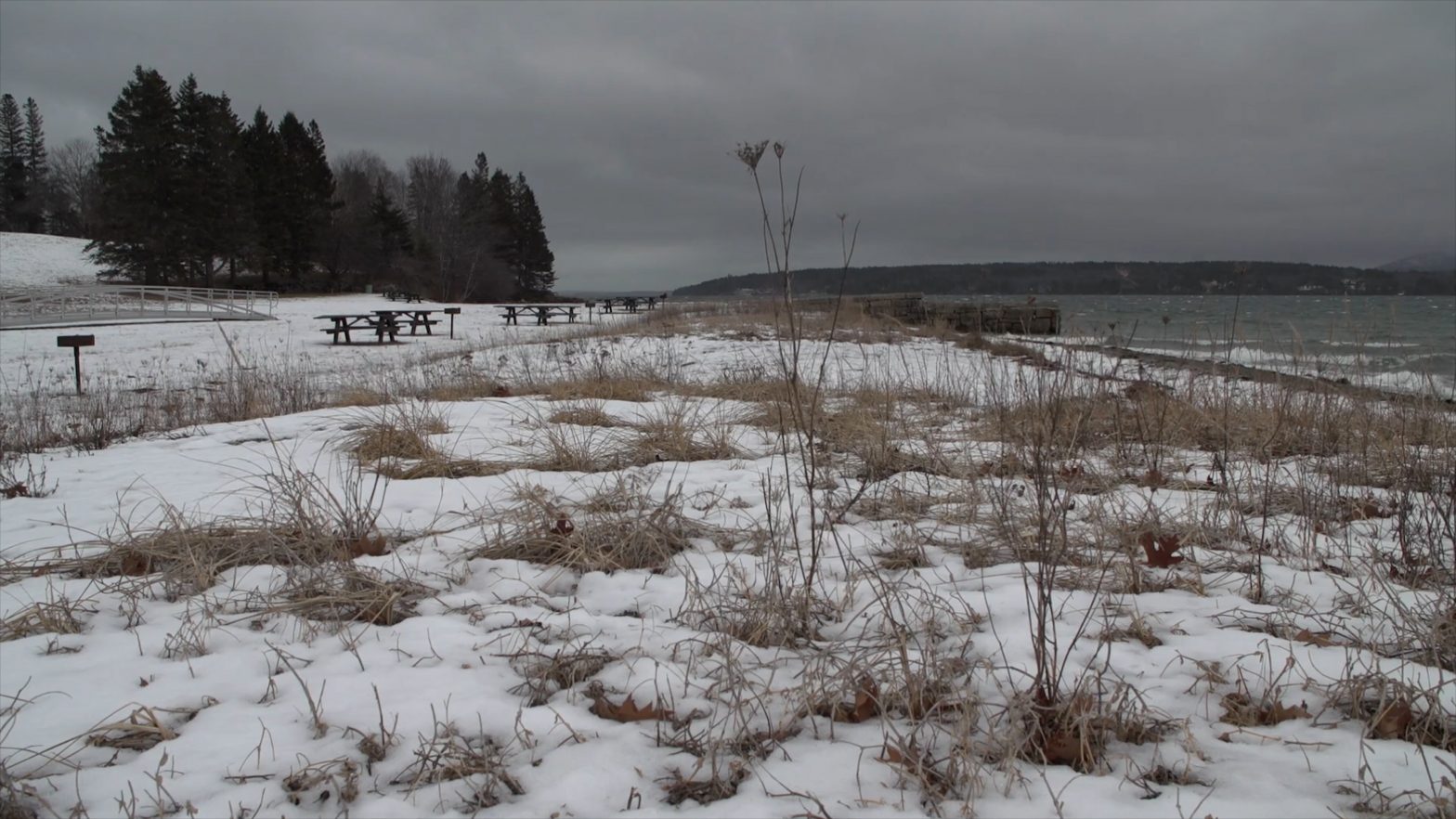The Way Life Is
- Sophie Nacht and Maple Razsa
film, 9 minutes and 42 seconds, 2021.
Artist Statement
Before White Mainers declare that the state is “the way life should be,” we should first listen to The Way Life Is for Mainers of color. In a year marked by long-overdue racial reckoning, it’s worth noting that Maine has one of the highest rates of incarceration per capita for people of color. But this documentary short is not focused on the staggering statistics of mass incarceration. The Way Life Is is organized around carefully listening to the words of Robert Payzant, a native Mainer recently released from a fifteen-year sentence. He narrates his Maine childhood, his prison experiences, and his recent efforts to navigate release into a world thoroughly disrupted by COVID-19. Robert makes clear how being biracial in Maine influenced his sense of self, his criminal sentencing, and how he was treated in prison. Particularly stark are his reflections on how, from childhood, his life possibilities were foreclosed, not least through his adult sentencing at age 16. The question, perhaps, is not whether Robert deserves a second chance, but whether he ever got a first one. Altogether Robert’s matter-of-fact narrative makes clear how pointless, destructive, and heartbreaking long-term incarceration almost always is. Apart from a single early shot that shows those locked inside Kennebec County Jail desperately seeking contact with the outside world, The Way Life Is will not feature images of incarceration. Instead, the film will use long takes of Maine landscapes in winter, as well as a series of close-up visual abstractions of artifacts pulled from within those larger landscapes. We take this approach, first and foremost, to create a mood that is quiet and contemplative, to create an atmosphere that encourages audiences to carefully listen to Robert’s words. The experience he shares is at once so manifestly his own, but also one that has all too much in common with those of other incarcerated Mainers. Second, this visual approach will both play on and subvert familiar landscapes often associated with tourist pleasure, hinting instead at the harsher realities and fraught relationships that have long characterized life in Maine for many. This documentary invites viewers to contemplate this other reality–and to use our ongoing period of isolation and mourning to reflect on and rethink the kind of Maine we wish to create for our collective future. This film emerges from a Colby College class dedicated to documenting Black Lives Matter in Maine in cooperation with a number of Maine-based abolitionist organizations. In our wider collaboration, and in the crafting of this film, we are committed to supporting their work and amplifying the voices of incarcerated and formerly incarcerated Mainers of color. We are especially grateful for the support and collaboration of Joseph Jackson, Director of the Maine Prisoner Advocacy Coalition.
Artist Bio
Sophie Nacht (Co-director) is studying film and environmental policy at Colby College. She discovered a love of stories–both hearing and telling them–during a year of interviewing those she met while traveling. This fall, she took “Visual Ways of Knowing,” a documentary production class focused on the ethics of storytelling and documentary filmmaking with a focus on the Black Lives Matter movement in Maine. Sophie reached out to the Maine Prisoner Advocacy Coalition to learn more about their work and met Robert Payzant whose story became the basis for this film.
Maple Razsa (Co-director & Producer) is committed to using text, images, and sound to embody the lived experience, as well as the political imagination of contemporary social movements. Trained as a filmmaker and anthropologist at Harvard University, he is an Associate Professor of Global Studies at Colby College. His films—including The Maribor Uprisings, Occupation: A Film About the Harvard Living Wage Sit-In, and Bastards of Utopia—have shown in festivals around the world, including CPH:DOX, Hot Docs, Rooftop Films, the Camden International Film Festival, and DOK Leipzig. His films have also been featured at the George Eastman House, Harvard Film Archive, Museum of Fine Art, Boston, Anthology Film Archive as well as at more than 100 universities worldwide. The Society for Visual Anthropology named Uprisings the Best Feature Film of 2017. Maple lives in the Parkside neighborhood of Portland, Maine, only a few blocks from the house in which he grew up. More at http://mariboruprisings.org/.


